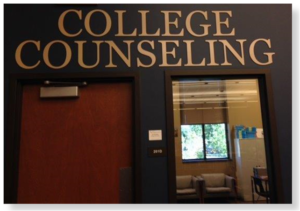 Most larger universities like Indiana University (close to where my office is located) have health programs called CAPS which stands for Counseling and Psychological Service. They are often staffed with licensed therapists/counselors and psychiatrists with a range of experience and expertise. Their primary goal is to act as a stabilizing resource for most mental/behavioral health or substance use issues. Many university CAPS typically offer individual, group and couples counseling along with occassional free workshops. Here’s the list from IU CAPS on what they typical help with:
Most larger universities like Indiana University (close to where my office is located) have health programs called CAPS which stands for Counseling and Psychological Service. They are often staffed with licensed therapists/counselors and psychiatrists with a range of experience and expertise. Their primary goal is to act as a stabilizing resource for most mental/behavioral health or substance use issues. Many university CAPS typically offer individual, group and couples counseling along with occassional free workshops. Here’s the list from IU CAPS on what they typical help with:
- Academic Concerns
- Relationship Concerns
- Stress Management
- Power and Privilege
- Time Management Help
- Sleeping Issues
- Adjusting to College Life
- Anxiety
- Depression
- Substance Use
- Body Image, Eating, and Exercise Concerns
- Sexual Assault or Abuse
They have the same confidentiality requirements as counselors like me off campus but are limited in many ways. CAPS limits the number of unpaid sessions (IU CAPS allows for two) and mandates that a student must be working with one of their counselors if they want to meet with a psychiatrist for medication management/evaluation. Here’s a breakdown of IU CAPS fees:
| COUNSELING | With IU Health Fee | W/O IU Health Fee |
|---|---|---|
| First two sessions (per semester) | No charge | $55 per session |
| Additional full sessions | $30 per session | $55 per session |
| Additional half sessions | $20 per half session | $35 per half session |
| Additional group counseling | $15 per 60 min. session
$17 per 90 min. session |
$29 per 60 min. session
$35 per 90 min. session |
| PSYCHIATRY | ||
| First visit | $55 | $105 |
| Follow-up visit | $30 per visit | $55 per visit |
IU CAPS does not accept insurance but does provide a super detailed invoice to be submitted to a student’s insurance company for reimbursement.
Over the last few years, I’ve noticed many CAPS programs around the country have had a huge increase in demand for their services while also having budget cuts or mediocre increases that leave them without the full team of professionals they need for each semester. At IU CAPS, every one counselor is responsible for 2,110 students (yikes!). This is not a new problem at IU and not isolated to IU.
So what can a parent or student do? If CAPS doesn’t seem like a good option, look for a therapist/counselor convenient to campus who specializes in college students. Therapists should be flexible to accommodate busy course loads and social events. In my practice, I have extended evening and weekend hours since many students a slammed with class 9-4pm most days. It’s also important that the therapist be willing to talk with parents and provide updates and suggestions. Parents can sometimes feel like their kids are a million miles away. A good therapist can often act as a bridge and lower the anxiety associated with having kids at school.
Finally, talk with CAPS (or encourage your son or daughter to) the first week of school. It’s easier to cancel an appointment than to stand in line after all the students are back on campus. The intake process should be thorough and your kid shoul feel like the therapist/counselor will really understand their issues and help.
